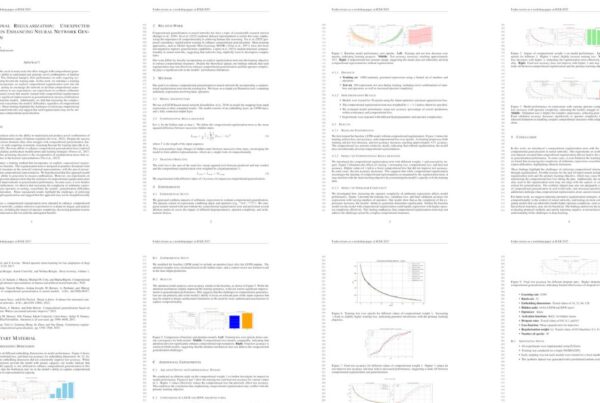California has officially adopted the first Frontier AI law in the United States, marking a pivotal step in regulating advanced artificial intelligence systems. The legislation mandates greater transparency and oversight for developers and companies working on large-scale AI models, especially those capable of high-level autonomous reasoning and decision-making.
The bill, signed by Governor Gavin Newsom, reflects California’s ambition to remain a leader in technology while addressing growing concerns about the potential risks of powerful AI systems. Although some industry players consider the regulation relatively light, experts view it as a foundational step toward more comprehensive state-level AI governance.
The Significance of the Frontier AI Law
California’s new law aims to balance innovation and responsibility. For decades, the state has served as the heart of global technological advancement, home to giants like OpenAI, Google, and Anthropic. However, the rapid pace of AI development has sparked fears about misuse, disinformation, and safety risks.
Under this regulation, AI developers must disclose certain information about the data sources, model capabilities, and safety measures behind their systems. The legislation also establishes a framework for regular risk assessments, encouraging companies to implement stronger internal safety protocols before releasing products to the public.
Transparency and Accountability Requirements
The Frontier AI law sets specific rules for transparency. Companies creating models beyond a certain computational threshold must submit reports detailing potential risks, misuse scenarios, and mitigation strategies. This includes disclosing how AI models are trained, whether they can autonomously generate code, or produce persuasive human-like content.
Furthermore, firms must cooperate with independent auditors who will review model safety practices. This measure is designed to ensure that high-impact AI systems cannot be deployed without sufficient safeguards.
While these regulations do not impose heavy penalties, their symbolic weight is significant. California has long been a trendsetter in technological policies, and this law could inspire similar initiatives in other U.S. states.
Industry and Expert Reactions
Reactions to the law have been mixed. Some AI researchers and ethicists praise California for taking a proactive approach to transparency. “It’s an important start,” said Professor Emily Carter of Stanford University. “By introducing baseline rules for disclosure, the state is acknowledging the societal impact of AI.”
However, major tech firms have expressed cautious optimism. Representatives from Silicon Valley argue that overregulation could stifle innovation. They emphasize that the Frontier AI law should remain flexible to accommodate rapid technological change.
Despite these concerns, even critics admit the law is mild compared to the European Union’s AI Act. Instead of focusing on heavy compliance, it prioritizes transparency and accountability as the cornerstones of responsible AI development.
Context Behind the Legislation
The introduction of the Frontier AI bill follows a series of debates across the United States on how to govern artificial intelligence responsibly. Federal lawmakers in Washington, D.C., have yet to pass comprehensive legislation, leaving states like California to take the initiative.
In recent years, public anxiety about AI has grown. Deepfake technology, algorithmic bias, and the spread of synthetic media have fueled demands for stricter oversight. California’s decision responds to these concerns by establishing guidelines for safe AI development without hindering progress.
Connection to Global AI Regulations
California’s approach mirrors a global trend toward regulating AI. The European Union’s AI Act, for example, classifies AI applications based on risk levels and imposes fines for violations. Meanwhile, countries like China and Canada have introduced frameworks for transparency and data ethics.
By focusing on Frontier AI, California’s law directly targets advanced systems capable of self-improvement or generating unpredictable outcomes—models that could theoretically surpass human-level cognitive tasks. These systems are often considered “frontier” because they operate at the edge of technological capability.
The alignment of California’s standards with international principles may facilitate future cooperation between governments and AI labs on safety and ethical issues.
A Precedent for Future Regulation
Policymakers believe this step will not be the last. The Frontier AI framework is expected to evolve as technology advances. California officials are already considering complementary rules for data privacy, AI-generated content labeling, and the use of AI in critical sectors like healthcare and finance.
Experts predict that as these discussions progress, other states may adopt similar laws. New York, Massachusetts, and Washington have already introduced preliminary AI-related bills, though none as comprehensive as California’s.
Balancing Innovation and Safety
One of the central challenges facing lawmakers is finding equilibrium between technological innovation and public safety. California’s economy depends heavily on the tech industry, which contributes billions of dollars annually and employs hundreds of thousands of residents.
The Role of AI Companies
Leading AI companies have welcomed the opportunity to engage with regulators. OpenAI, Anthropic, and Google DeepMind have expressed willingness to collaborate on establishing global safety standards. By voluntarily sharing safety research and model evaluations, these organizations hope to shape regulation that fosters both trust and innovation.
Meanwhile, smaller startups are concerned about compliance costs. For them, transparency requirements could impose additional burdens, especially if they lack the resources of larger corporations. Policymakers have acknowledged this concern and promised to provide technical guidance for small developers.
Public Awareness and Education
Beyond regulation, the law emphasizes public education about AI. California plans to launch initiatives that inform citizens about AI’s capabilities, risks, and ethical implications. These programs will target schools, universities, and community centers, aiming to build a more informed digital society.
Analysts argue that public understanding is crucial to preventing misuse and ensuring accountability. “AI is not just a technical challenge; it’s a social one,” said technology ethicist Dr. Rajesh Malhotra. “Transparency laws only work if the public knows what’s at stake.”
Global Implications of the Frontier AI Law
The ripple effect of California’s decision may extend far beyond U.S. borders. Historically, California’s privacy laws, such as the California Consumer Privacy Act (CCPA), have influenced global data regulations. The Frontier AI law could play a similar role in setting de facto standards for AI governance.
Potential Impact on Innovation
While the law aims to ensure safety, it may also push AI developers to innovate more responsibly. Experts believe that clear rules can actually accelerate progress by defining boundaries and expectations. Transparency builds public trust, which in turn supports adoption of new technologies.
At the same time, critics warn of “regulatory fragmentation” if other states create conflicting AI rules. To mitigate this, California lawmakers are coordinating with federal agencies to ensure compatibility with potential national frameworks.
The Future of AI Regulation in the U.S.
The Frontier AI law could become a blueprint for federal legislation. Lawmakers in Washington are already referencing California’s model in discussions about a national AI policy. This could lead to the creation of a unified oversight body, similar to the Food and Drug Administration but focused on digital technologies.
If adopted nationwide, such a framework would mark the beginning of a new era of AI accountability in the United States.
California’s adoption of the Frontier AI law represents a landmark moment in the history of artificial intelligence regulation. Though modest in scope, the law’s emphasis on transparency and accountability sends a clear message: powerful AI systems must operate under public scrutiny.
As the world watches, this initiative could define how democracies balance innovation and ethics in the age of artificial intelligence.
For readers interested in related topics, visit Olam News for updates on global technology policy and the evolving landscape of AI governance.




